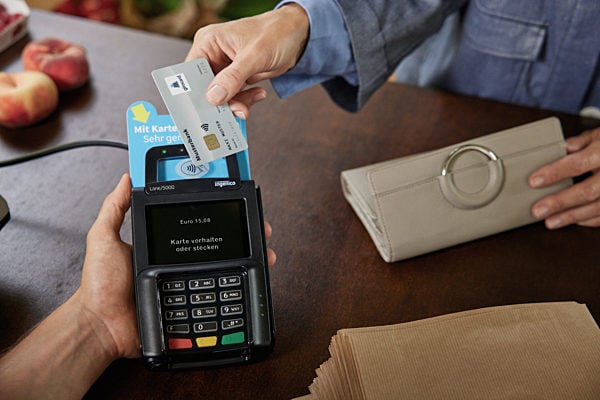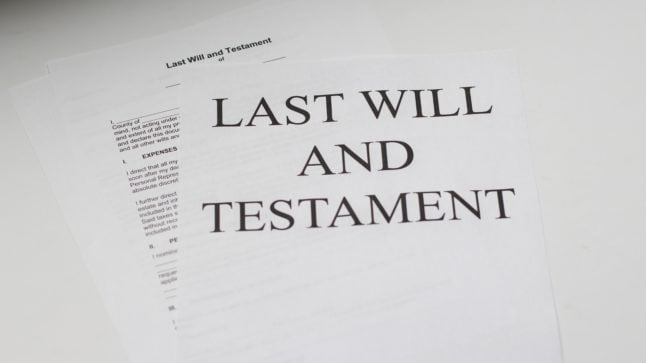Germany has long been a very cash-based country, occasionally to the dismay of frustrated tourists at the Döner shop.
A few German phrases express the people’s love of physical money. There’s ‘only cash is true’ – Nur Bares ist Wahres. Or Bargeld lacht, literally meaning cash laughs, but used to imply that cash is what’s wanted, similar to ‘cash is king’ in English.
But the classic German preference for cash appears to be evolving, as the use of girocards is growing, even for small transactions.
How are girocards being used?
Girocard, an ATM and debit card service offered by German Banks, was designed to allow customers to use virtually all German ATMs and, increasingly, to make purchases at businesses.
READ ALSO: Ask an expert – Why is cash still so popular in Germany, and is it changing?
Last year, consumers in Germany used their Girocard more often than ever before for cashless payments. A total of €7.48 billion payment transactions with the plastic card were counted – 11.5 percent more than in the previous record year 2022, according to figures published by the Frankfurt-based institution Euro Card Systems.
Whether at the bakery, petrol station or supermarket, customers are increasingly pulling out their cards at the checkout, even for smaller amounts. As a result, the average amount paid with the Girocard fell from €42.34 to €40.69 within a year.
The rise of card payments in Germany
Contactless payment, which is possible with girocards and credit cards that have an NFC chip, got a boost during the Covid pandemic, as retailers promoted it for hygiene reasons.
But the use of card payments has continued to grow in Germany since then, boosted partly by the increasing use of girocards.
Promoting the use of girocards, some German banks have expanded their cards’ functions: Sparkassen, Volksbanken, or Raiffeisenbanken offer girocards for the digital wallet, for example.
Banks want to continue upgrading the payment card with further applications. For example, a project is being tested which would add an age verification function to girocards that would be useful when a customer is buying cigarettes.
On the retail side, it’s clear why the Girocard is preferred to other debit options.
“We see that debit cards from international providers cost up to four times more,” Ulrich Binnebößel, Head of the Payment Systems & Logistics Department at the German Retail Association (HDE) told DPA.
What’s the difference between the Girocard and other debit?
The Girocard is a strictly German phenomenon. It can be seen as the latest iteration of the EC card, which was created to consolidate payment systems following the unification of former East and West Germany.
In 1991 different debit card systems, including Eurocheque guarantee cards from former West Germany and Geldkarte ATMs from former East Germany, were unified into Eurocheque cards.
Then in 2001, the Eurocheque system was disbanded, but German banks continued to use the EC logo for “electronic cash’” cards, or EC cards. In 2007, the German Banking Industry Committee introduced Girocard as a common name for electronic cash and the German ATM network.
Girocards are only issued and accepted in Germany, so if you want to get one of your own, you’ll have to join a German bank, and shell out those notorious German banking fees.
READ ALSO: Why it’s almost impossible to find a free bank account in Germany
Alternatively, you can get by with internationally accepted debit cards provided by a bank in your home country, or otherwise by joining an app-based European banking service like N26.
But be warned, without the Girocard in hand, at some smaller retailers you may be told, “Leider nur Bargeld oder EC-Karte.”
With reporting by DPA




 Please whitelist us to continue reading.
Please whitelist us to continue reading.
Member comments